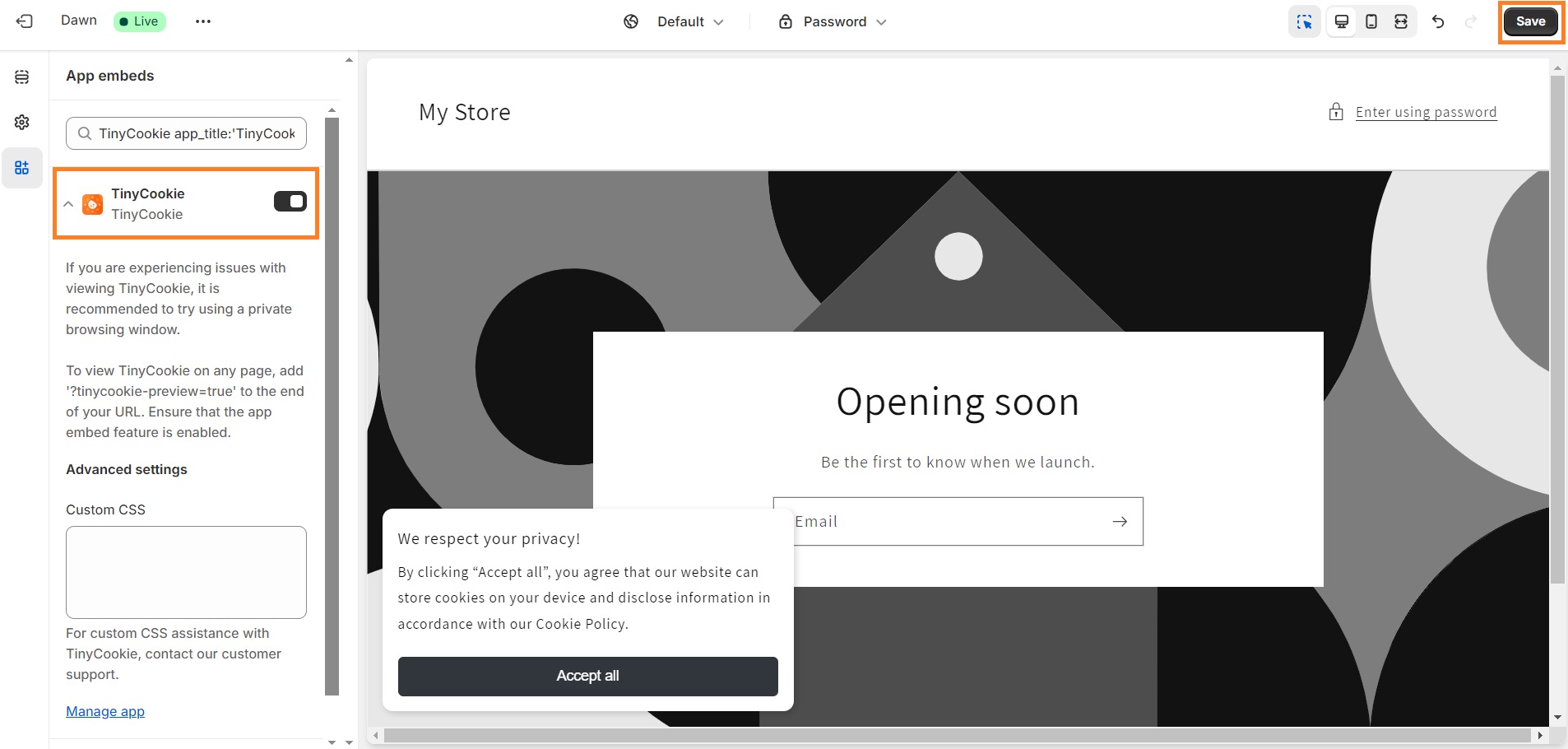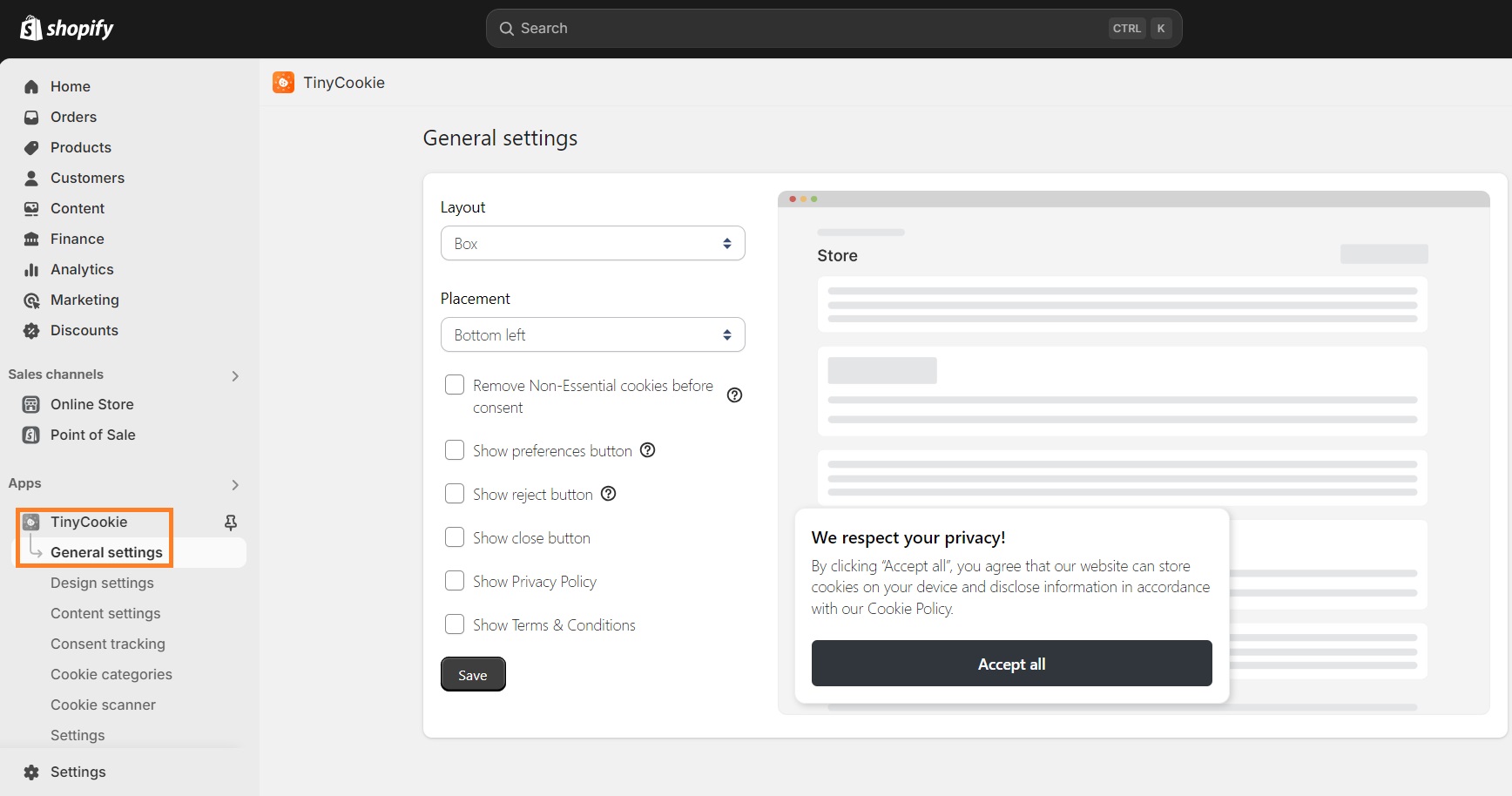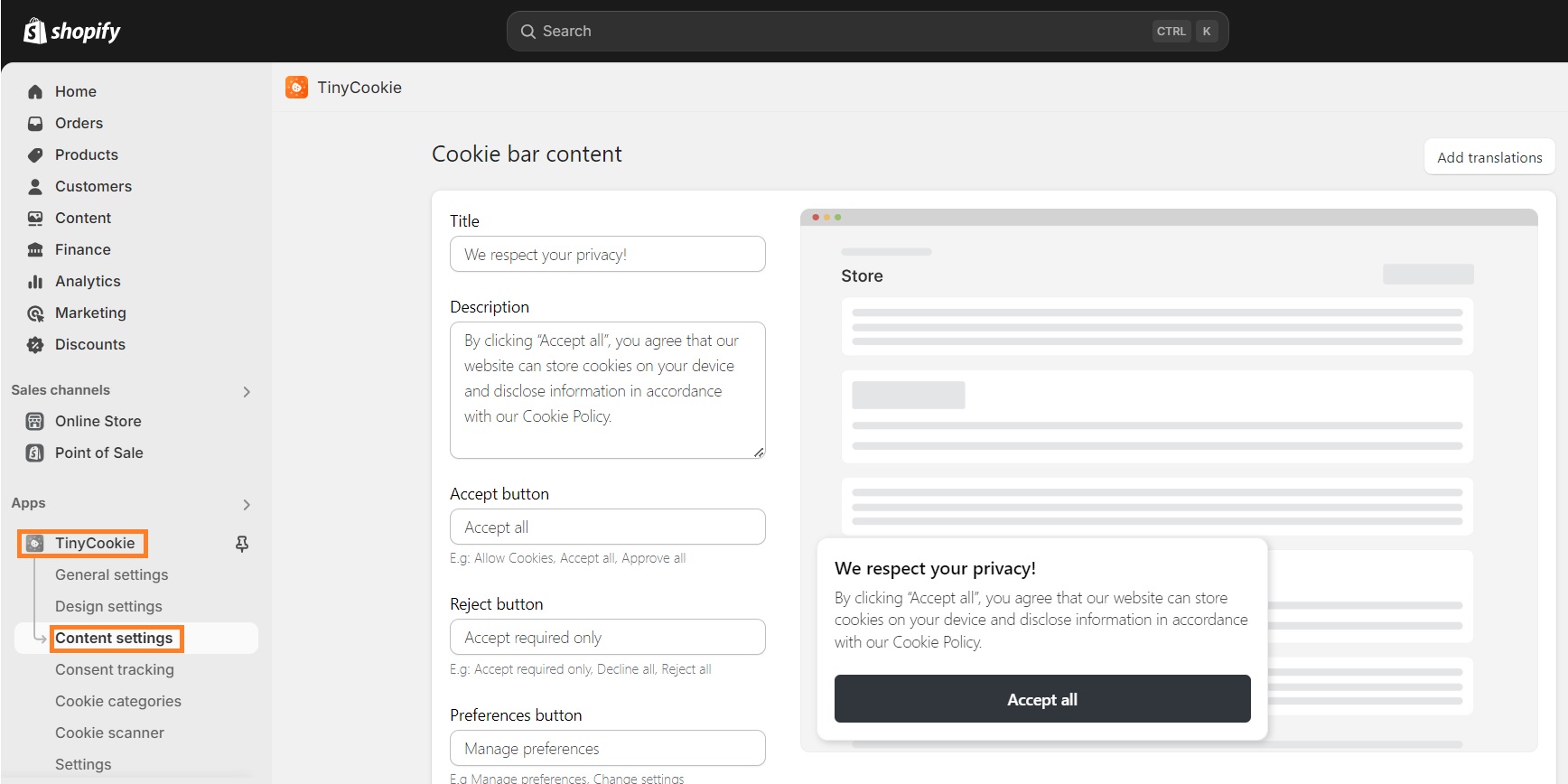Many Shopify store owners are unaware of the cookies that the platform uses, resulting in unintentional cookie law violations. Shopify uses cookies for many different purposes, from authentication to site performance, and it’s important to understand them to protect customer privacy and avoid large GDPR or CCPA fines.
Continue reading to learn what cookies are on Shopify and whether your Shopify store requires cookie consent from site visitors.
What are Shopify cookies?
Shopify cookies are cookies that are used by Shopify for different functionalities. These include tracking user activities when they interact with the website and authenticating users for security purposes.
For example, Shopify cookies can be used to enhance user experience by eliminating the need to log in each time and remembering the user’s shopping cart or language preferences.
Alternatively, cookies can be used for targeted advertising. They collect data about a user, such as their browsing history, device used, age, and location, and segment users to show ads that are relevant to them.
Types of Shopify cookies
According to the Shopify privacy policy, the platform has different types of necessary and non-essential cookies in place. Here are the main types of cookies the platform uses:
- Strictly necessary – strictly necessary cookies are cookies that are essential to ensure the functioning of the store. They’re used to improve security, accessibility, and smooth site performance of basic actions, like adding products to a shopping cart or browsing through pages.
- Functional – Shopify uses functional cookies that remember user preferences and data they provide to personalize user experience. This can include anything from region to username and more.
- Performance – performance cookies collect aggregated data to monitor user behavior on a Shopify website. They can count time spent on the website, bounce rates, loading speeds, page visits, and more.
- Advertising – advertising cookies are used for marketing purposes. They track user behavior to deliver relevant ads. However, Shopify doesn’t use these cookies on the websites of their merchants.
- Social media or content – these cookies are used to connect websites to social media platforms. For example, they can be helpful to share content using a social media widget. Alternatively, a YouTube cookie can monitor views on an embedded video.
Do you need cookie consent on Shopify?
Yes, if you have visitors from the EU, you need cookie consent on Shopify. According to the GDPR Article 7 and ePrivacy Directive, cookie consent is mandatory if you collect user data through non-essential cookies. The Shopify platform also adds cookies on merchant sites, including both essential and non-essential third-party cookies.
Additionally, if you use any third-party apps from the Shopify app store, they can also place cookies on your site.
Most privacy regulations, like the GDPR and the ePrivacy Directive, require obtaining user consent through affirmative action before deploying cookies on the user’s device.
So, if your Shopify website gets visitors from regions protected under privacy laws that require consent, you must obtain it through a cookie banner and write a clear cookie policy.
How to comply with GDPR and CCPA on Shopify?
Shopify merchants must include a cookie policy and cookie consent banner on their website if they use cookies to comply with GDPR and CCPA.
The cookie policy should include all the necessary information required by these privacy laws. For example, under both GDPR and CCPA, it should include a full list of cookies and their purpose, company contact information, and details on how to withdraw consent.
You can take a look at all the main compliance requirements of GDPR and CCPA here:
| Requirements | GDPR | CCPA |
| Asking for user consent | ✅ | ❌ (consent is given automatically, except for minors and sensitive data) |
| Providing what cookies are used and why | ✅ | ✅ |
| Record and store user consent | ✅ | ✅ |
| Provide an option to withdraw consent | ✅ | ✅ |
| Allow users to access the website even if consent isn’t given | ✅ | n/a (not explicitly mentioned) |
You can add a cookie policy to Shopify by going to your admin dashboard > Online Store > Pages and clicking Add page. Simply add the title and cookie policy content and click Save.
Meanwhile, a cookie consent banner can be easily added using a third-party Shopify app like TinyCookie.
How to add a cookie consent banner on Shopify?
Learning how to add a cookie consent banner on Shopify takes just a few simple steps. Here’s how to do it:
- Install a cookie consent tool from the Shopify app store, like TinyCookie.
- Embed the app.
- Go to your Shopify Admin dashboard, open the app, and click General settings to change the cookie banner layout and placement. Don’t forget to click Save.
- Customize cookie banner content by clicking Content settings. Click Save once it’s ready.
You can preview how your cookie consent banner looks by opening the theme editor or your published website. Keep in mind that some tools, including TinyCookie, automatically track user consent forms and let you export them to a .xlsx file.
Does my Shopify store use cookies?
Yes, all Shopify stores use cookies because they’re placed by the platform itself for different purposes. Some of the main use cases are:
- User preferences. Shopify cookies help remember what currency, country, language, or other settings the user has set.
- User authentication. Shopify uses cookies to authenticate users and avoid unauthorized access.
- Analytics. Cookies help understand how visitors use your site and gather information for analytics.
- Advertising. Some types of cookies are used for targeted advertising.
- Shopping cart. Cookies help remember cart information while users navigate the site, so they don’t have to re-add the items each time they go to a new page.
Conclusion
Shopify uses various types of cookies for analytics, user authentication, and eCommerce functionality. If your website runs on Shopify, you need to ensure your cookie practices comply with privacy regulations like GDPR for eCommerce, which sets strict rules on user consent and data handling in online stores, as well as laws like the CCPA.
To comply with privacy laws, website owners must inform users about cookie usage and provide options to consent or withdraw. The fastest way to ensure compliance is using a cookie banner, like TinyCookie. All you have to do is embed the app and the banner will appear on your website.
Frequently asked questions
You can create a cookie in Shopify by getting a third-party app like TinyCookie. All you have to do is go to the Cookie categories section, type in the cookie you want, and click Save.
Using Shopify doesn’t guarantee GDPR compliance because Shopify merchants control and handle their own customer data. That’s why merchants must create a GDPR-compliant cookie policy and add a cookie consent banner.
Shopify stores must adopt cookie consent banners or pop ups that would inform website visitors about cookie usage on their site. That’s because Shopify uses both essential and non-essential cookies on the platform’s merchant sites. And if site owners are using third-party apps, they may also come with their own set of cookies.




